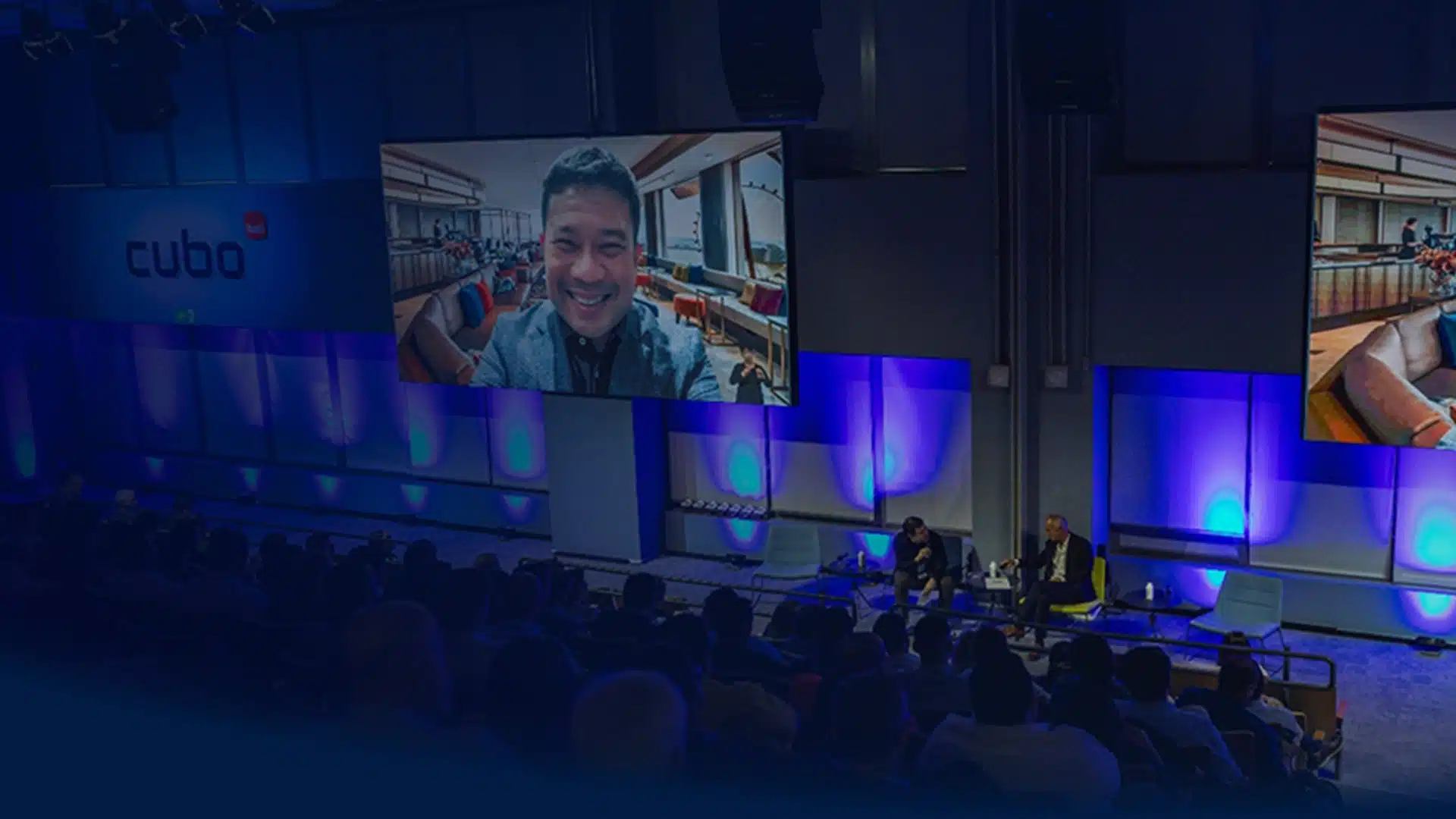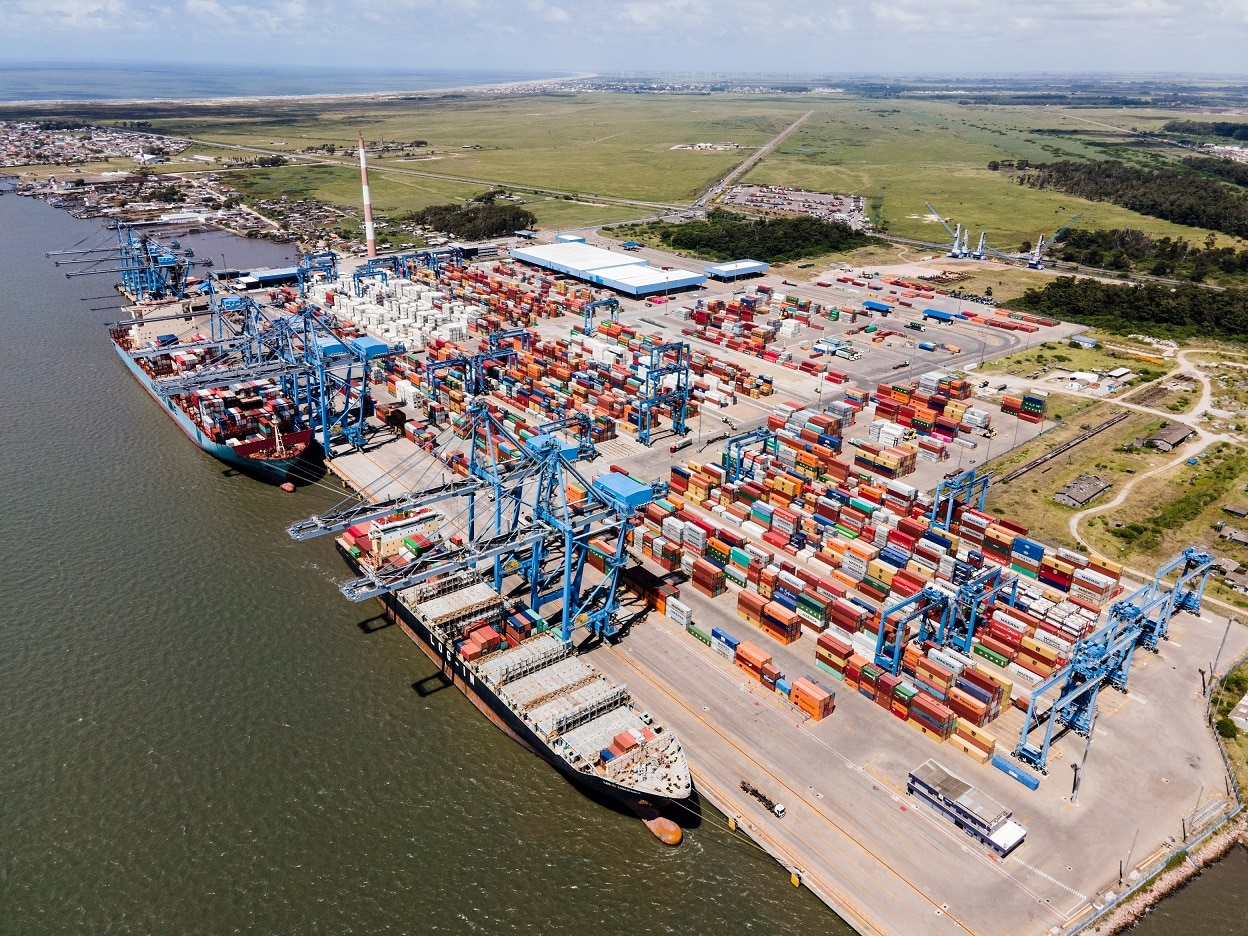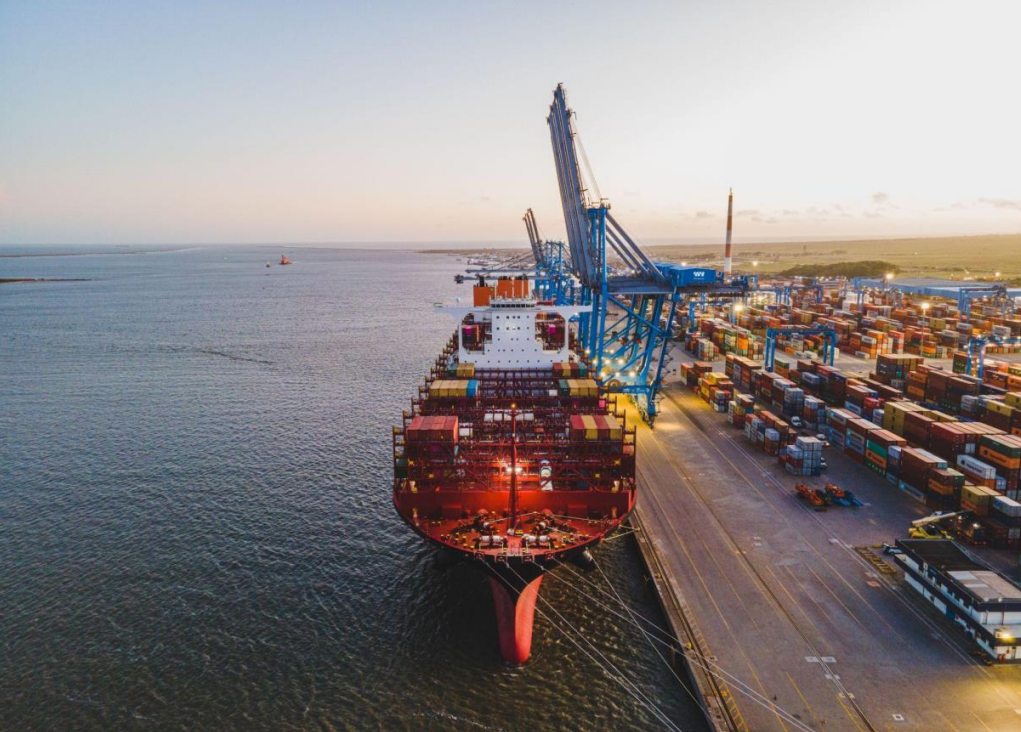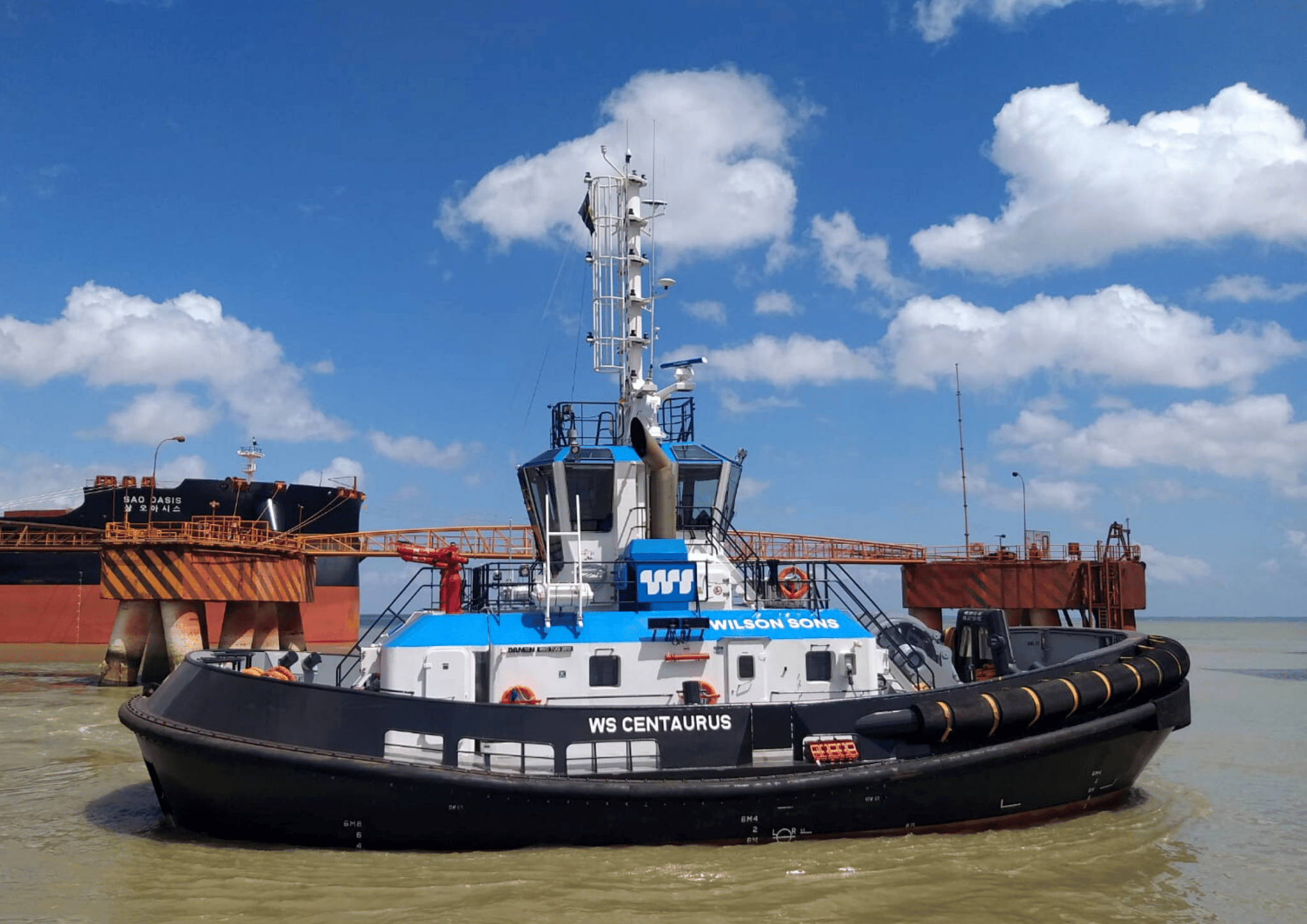Cubo Maritime & Port: Three years of fast-tracked decarbonization, AI, and business development in the port industry
Completing three years of operation, Cubo Maritime & Port — Cubo Itaú’s sector hub in collaboration with Wilson Sons, Port of Açu, and Hidrovias do Brasil — successfully fulfils its role as a catalyst for the maritime and port ecosystem. Thanks to the connection provided by Cubo, the oceanographic tracking solution delivered by HidroMares, a […]
- 29/08/2025
- 7 minutes

Completing three years of operation, Cubo Maritime & Port — Cubo Itaú’s sector hub in collaboration with Wilson Sons, Port of Açu, and Hidrovias do Brasil — successfully fulfils its role as a catalyst for the maritime and port ecosystem. Thanks to the connection provided by Cubo, the oceanographic tracking solution delivered by HidroMares, a marine technology firm company that covers about 40% of the Brazilian coast, will go global and join SGS’s global portfolio of environmental services, illustrating how the hub converts collaboration into scalable business. The startup HidroMares was acquired by SGS after they met at Portos ao Cubo, the hub’s anchor event.
The event Portos ao Cubo was created to push new ideas and connect all links in the chain. Since its first edition, it has evolved into the industry’s main innovation arena, attracting over 400 people to discuss trends and insights annually.
Value generated by the hub
The story of HidroMares illustrates how the hub generates real value: by connecting the challenges faced by industry giants with cutting-edge solutions developed by startups, attracting investment, and fostering strategic M&As.
Decarbonization gains scale
Unprecedented test with HVO (Hydrotreated Vegetable Oil) — In a pioneering move in Latin America, Wilson Sons, Port of Açu, efen, and Vast conducted the first tugboat refueling with HVO, a second-generation biofuel that can reduce CO₂ emissions by up to 90% compared to marine diesel.
About 30 m³ of HVO were required to test mechanical performance, consumption, and emissions in a real operation. The purpose is to validate the fuel for continuous use and migrate the entire tugboat fleet by 2026. The project takes Brazil to a benchmark position in port decarbonization.
According to Eduardo Valença, Business Development Director at Wilson Sons, the company’s decarbonization agenda focuses not only on building more efficient tugboats but also on reducing the environmental impact of its fleet of more than 80 vessels. “In this scenario, HVO presents a promising solution because it is a drop-in fuel that can be used without any equipment adaptations. It is a relevant alternative for advancing the energy transition in the port support industry,” he states.
Director of Port Administration at Port of Açu Vinicius Patel agrees with the executive. “Energy transition is a reality and represents a brilliant opportunity for Brazil, with our renewable energy mix. The port infrastructure of Açu, with operational liquid terminals and enough space for new plants to be set up, combined with a strategic location, places us at a unique position to meet the growing demand for sustainable solutions in the energy and logistics chains. We have a hub that is focused on low-carbon products projects, where we can set up HVO and other fuel plants in the future,” he says.
Another important initiative to leverage decarbonization in the maritime and port industry is a combination of technology to capture carbon dioxide (CO2) directly from the air with technological solutions to convert this captured CO2 into fuel with a lower carbon footprint for vessels and aviation. This project aims to establish a cycle that not only mitigates CO2 emissions but also transforms this gas into renewable fuel, an essential resource for maritime and port operations. Initiated from a collaboration between Port of Açu and Repsol Sinopec Brasil, the DAC to SEA project stands out for its potential to promote significant advances in the field of decarbonization and energy transition through research and development with application in a real environment.
Artificial intelligence & automation
Hidrovias do Brasil employs Artificial Intelligence and Automation as the cornerstones of its Technological Plan, focusing on the practical application of technology to address operational challenges. The Company directs its investments towards initiatives that increase efficiency, support safety, and increase predictability in its waterway operations.
In this context, the Smart Shipping project was developed with Technomar, a naval engineering company that is part of the Cubo Maritime ecosystem. This project represents a significant step forward in Hidrovias do Brasil’s digital transformation journey, supporting the evolution of digital maturity and operating autonomy based on emerging technologies.
Powered by artificial intelligence and supported by a digital twin of the waterway setting, Smart Shipping’s mission is to transform river logistics through the intelligent, real-time integration of operational data. The solution connects shipping sensing and tracking systems to boost operating performance, ensure greater reliability, and maximize the availability of strategic assets.
The project receives investments from Finep, which is associated with the Ministry of Science, Technology, and Innovation. “We’ve competed with several other projects in Brazil. And we were selected because the project has the potential to impact the technological development of the maritime industry. The goal of Smart Shipping is to make navigation dynamics similar to those in the aviation industry, where decision-making is heavily assisted and automated to make captains’ lives easier,” adds Mariana Yoshioka, Director of Engineering and Innovation at Hidrovias do Brasil.
“Today, some shipping areas still operate as in the old times. And our goal is to take technology to the next level. Predictive capacity is crucial for optimal utilization of cargo capacity, reducing logistics costs, and strengthening operating resilience, especially amidst climate instability,” Mariana says.
Pioneering use of drone technology in port operations — Wilson Sons, through its Shipping Agency, started its first tests with Speedbird Aero drones to carry out deliveries and collections from vessels, at the Port of Salvador, in January this year. Considered a milestone of innovation in the Brazilian port industry, the drone operations are more efficient, safer, more agile, and sustainable, supporting industry-wide decarbonization.
New digital businesses gaining momentum
Economic powerhouse of the ecosystem — With only three years of activity, Cubo Maritime & Port already connects 21 startups specializing in logistics, shipping, automation, traceability, and efficiency solutions. These startups generated revenues of more than R$213 million in 2024, validating the economic and technological potential of the ecosystem fostered by the hub.
Beyond the financial impact, these startups are creating new jobs, attracting foreign investment, and digitizing operations in ports, vessels, and critical logistics chains, which is evidence of how open innovation has created market value.





